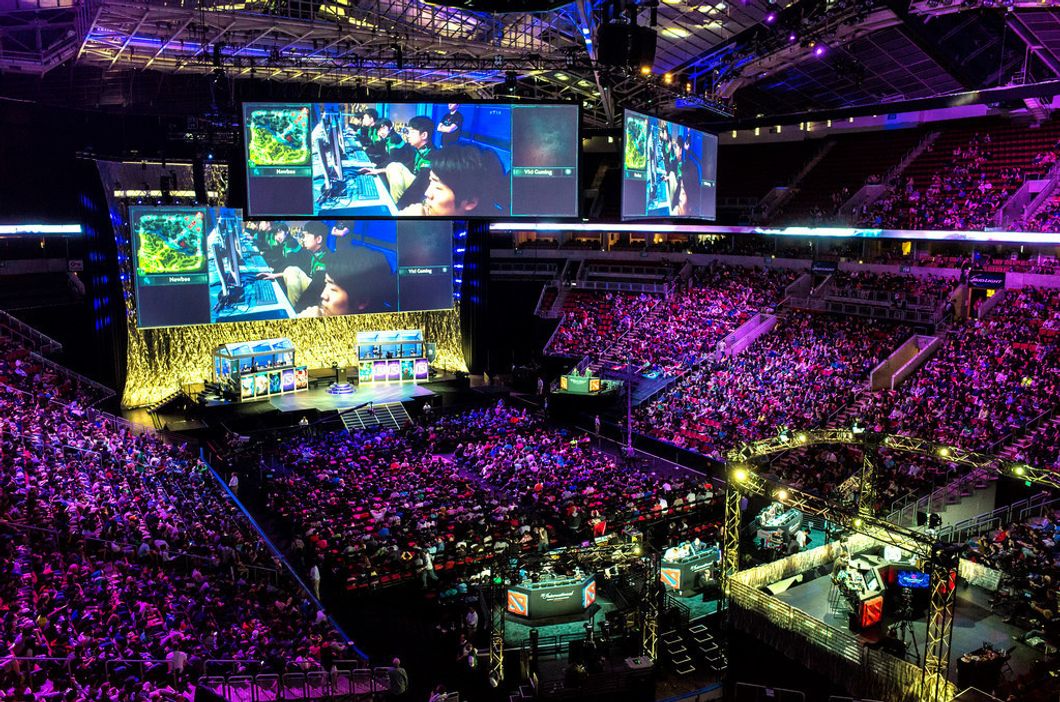Esports are a global phenomenon that see players from all walks of life and different regions around the world compete against each other. Since there are so many games that are played competitively, teams from certain countries tend to excel at certain games.
South Korea and China dominate "League of Legends," European nations dominate "CS: GO," and the U.S...well we have some catching up to do.
Which brings me to my next point. Investors are RAINING money on U.S. teams. Every venture capitalist and their mother are investing millions of dollars into these organizations (usually in the United States).
For fun we are going to name a few:
Magic Johnson - Owner of the Dodgers and Lakers. Invested in Team Liquid.
Steph Curry - Golden State Warriors point guard. Invested in TSM.
Steve Young - Hall of Fame football player. Invested in TSM
Dan Gilbert - Cleveland Cavaliers and founder of Quicken Loans. Invested in 100 Thieves
Neil Leibman - Co-owner of the Texas Rangers. Invested in OpTic Gaming.
Shaquille O'Neal - Hall of Fame basketball player. Invested in NRG.
Most of these organizations have teams and locations based in the United States. The more money that gets pushed into the industry, the better the teams are going to get and there are no signs of slowing down.
Organizations are treating players and personnel like professional athletes. Most have meals prepared for them by a team chef. 100 Thieves owner Matthew "Nadeshot" Haag even brought up his team's personal chef in the opening video of the video-documentary series of the League of Legends team: "The Heist."
Also, many players are following gym routines better than we are despite sitting in front of a computer screen for sometimes up to 12 hours in a single day. Red Bull published an article in 2017 about health and why it matters in the industry (A little hypocritical but I digress).
In the article, they talked to Taylor Johnson, a health expert who has worked with the San Francisco 49ers as an assistant strength and conditioning coach. He made this statement about esports and health when it comes to the teams.
"[In this profession,] you take these high-performance models that you would see in any elite sporting team," Johnson said. "You have programs that encompass nutrition, health, wellness, psychological preparation, sleep, recovery, all of the big building blocks that go into these elite programs."
I can take two things away from that. Development and health are serious and I have no excuse to not go to the gym.
The media has definitely taken notice. Esports are being covered and broadcasted like never before. While they are not at the same notoriety as traditional sports some of the larger leagues are getting more and more airtime.
I just walked downstairs a few days ago to notice that the playoffs for the Overwatch League were on the TV.
For someone who grew up playing with blocky graphics on classic Nintendos and PlayStations, this is mind-blowing. I for one except this change. I got to sit on my couch and watch Overwatch like I would an NFL game. That is incredible.
Broadcast and sports majors need to know it. Whether you like esports or not is beside the point. The industry is growing at such a rapid rate that the media and everyone is taking notice.
If a prospective college student going into broadcasting or sports media can know esports coming out, it will set them above the rest in terms of finding a job.

















